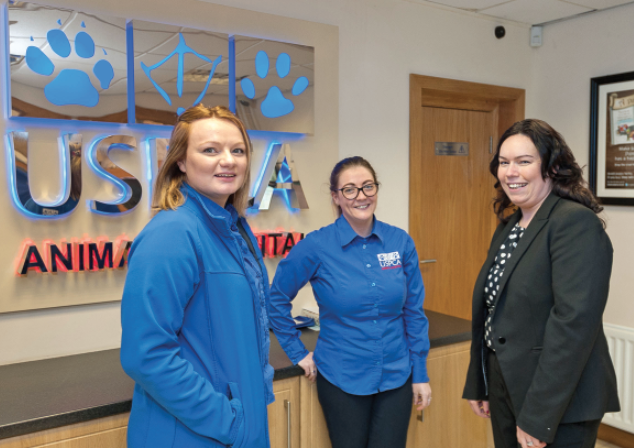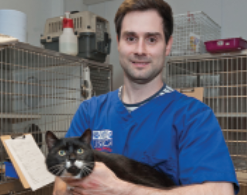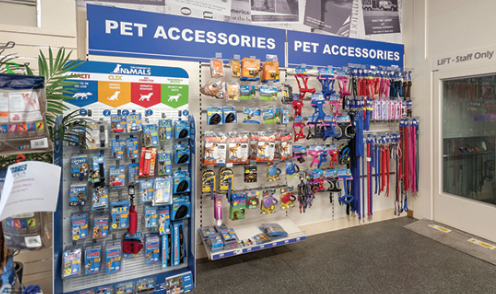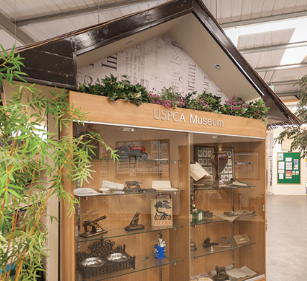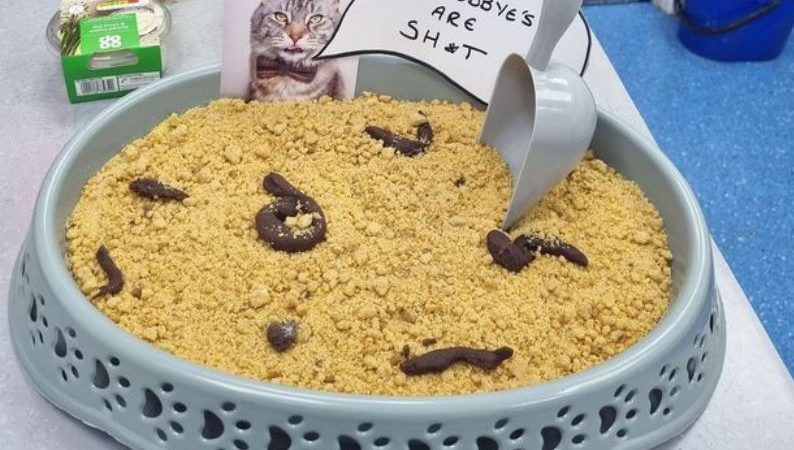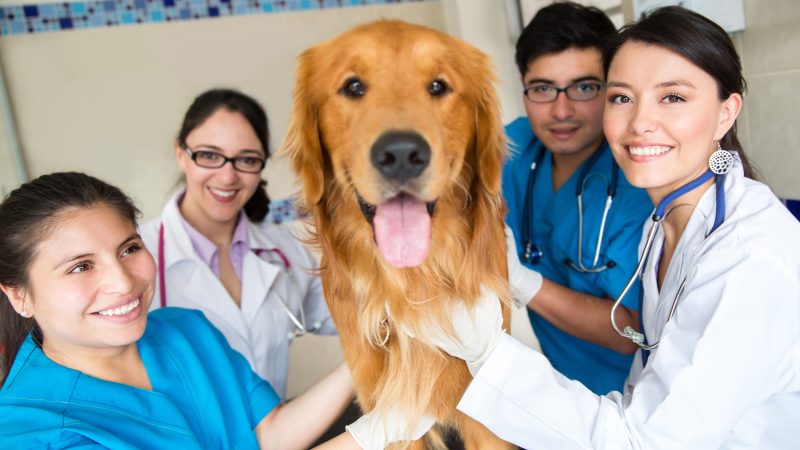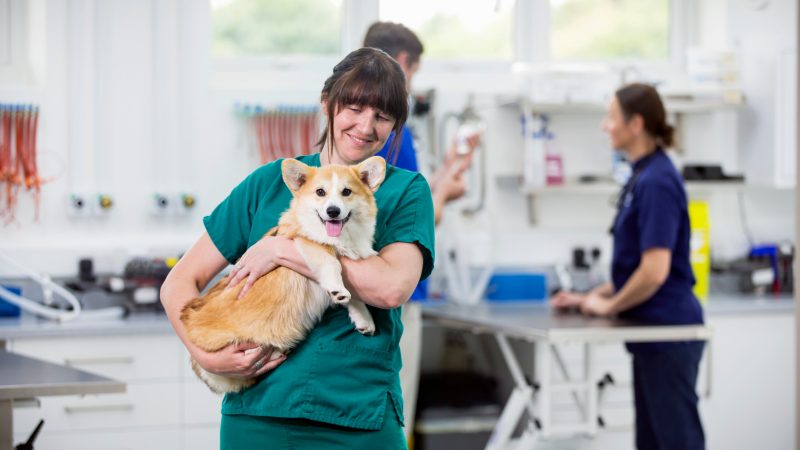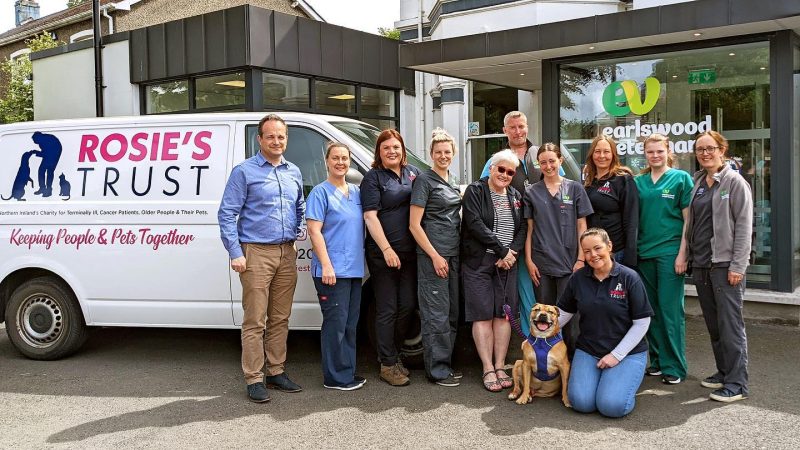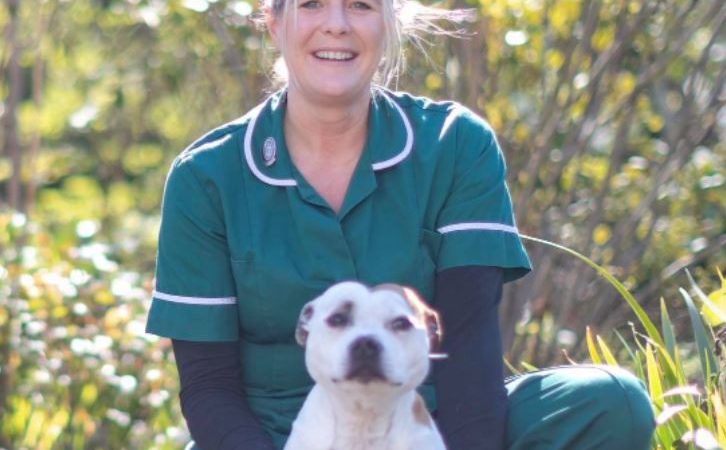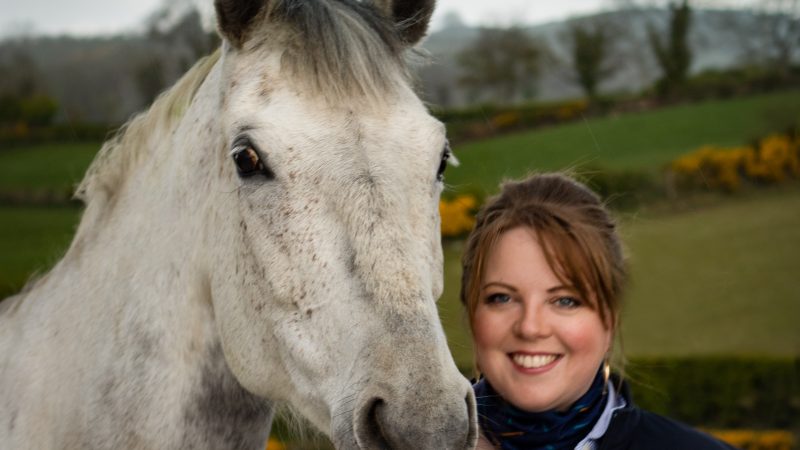Help where it’s needed
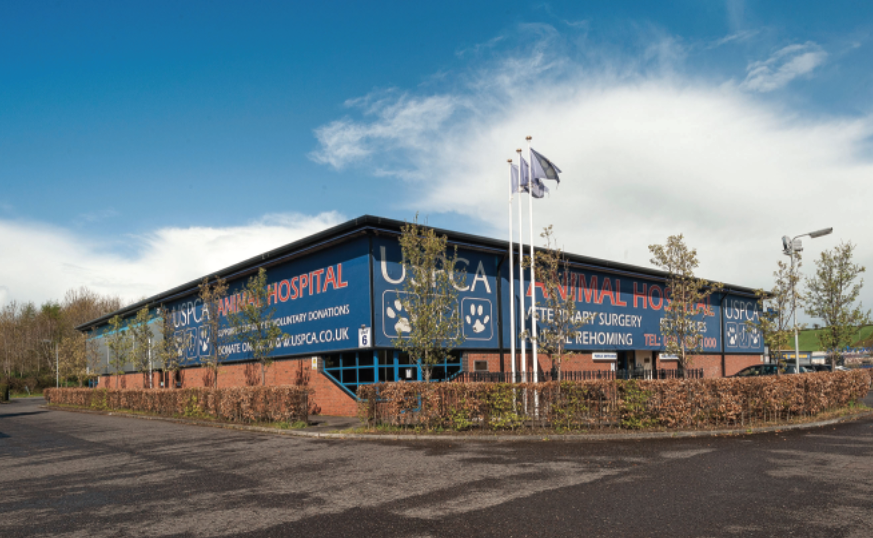
It’s exactly five years since the Ulster Society for the Prevention of Cruelty to Animals (USPCA) opened its expansive hospital and re-homing centre at the Carnbane Industrial Estate in Newry.
The USPCA’s animal hospital at Newry represents the practical out-working of the Society’s enduring dedication to relieving the suffering of animals.
Among the services the centre provides is a fully-equipped companion animal veterinary clinic which is open to the public seven-days-a-week.
Alongside that vital work, staff also operate a busy social re-homing programme. Anywhere between 10 and 15 needy dogs might be in residence at the Newry centre at any one time and around 250 dogs per year in Northern Ireland find caring new homes thanks to the efforts of USPCA staff.
But it isn’t just dogs. Whenever possible, the centre will provide a lifeline to any displaced animal and staff regularly find themselves looking after cats, guinea pigs and even lizards.
Newry is also the hub for the USPCA’s wildlife work and vets at the centre will treat a whole host of injured wildlife. In the past, they’ve helped everything from hedgehogs to badgers, birds and cantankerous swans. And if they can’t physically answer a distress call from a concerned member of the public, a system is in place to cover the expense involved in having the injured animal treated by local vets.
Professional
Senior veterinary surgeon, Andrew Groves (30), takes charge of the clinical care element of the Newry centre, with help from two other vets, and an RVN who also acts as practice manager. Originally from Rathfriland, Andrew came to the USPCA earlier this year after spending 18 months at Mourne Veterinary Clinic in KIlkeel and five years at Rathfriland Veterinary Clinic.
He says that when he arrived in Newry, he was immediately impressed both by the extent of the existing facilities and the professional approach of its staff:
“I was coming into a senior veterinary position, so I knew it was going to be challenging for me, but it was the right time in my career for me to take on more responsibility and I have also always loved the ethos behind the USPCA the prevention of cruelty and the relief of suffering for animals,” he told NI Veterinary Today.
The companion animal practice at Newry runs just like any other small animal clinic and Andrew stresses that the USPCA is not out to undercut other veterinary businesses in the area. A conscious effort is made to keep prices on a par with those charged by comparable local surgeries.
However, the USPCA does offer a benefits scheme which provides those clients who receive state aid with discounted veterinary care. Owners who are in receipt of benefits such as ESA or PIP can get up to 50 per cent off their medical bills.
“This is all about trying to help people who are on limited means provide care for their animals so that the animals are not suffering,” says Andrew.
“What we are really keen to do is to build relationships with other veterinary practices. We are here to help with situations such as re-homing, for example. And if there are practices who have a client that is in any kind of difficulty when it comes to paying for treatment, they have the option to send that client to us.
“We know that private practices are businesses at the end of the day and while they will always work with people, they can’t be handing out big discounts all the time. If an individual meets the criteria, they will qualify for a discount under the USPCA charitable scheme and that’s a system that works for everyone concerned.”
Exotic
Opening the Newry facility was a long-cherished ambition of the USPCA’s board. When it opened its doors in December 2012, it was the Society’s first animal hospital to have a full-service veterinary practice attached.
The veterinary surgery comprises a consultancy room, a prep room in which surgery is also carried out, digital X-Ray and ultrasound and all the other facilities that you might expect to find in a modern, mid-sized practice.
And it isn’t just dogs and cats that find themselves being cared for by Andrew and his staff at Newry. In the past, the vets have treated hedgehogs, badgers, a buzzard and even a racoon! And while some of their more unusual patients come to them simply because people know that the Society will treat injured wildlife, other more exotic patients will be brought in by their owners because there is a general understanding that vets in Newry have the experience and knowledge to deal with things that are a little more unusual:
“I think people know that we’re able to help these animals,” says Andrew. “I recently treated an orange-winged Amazon, which is a type of parrot. He had ulcers and so we referred him on to Jubilee Veterinary Centre in Newtownards.
“Relationships like this are something that we are keen to build up over time,” he adds. “We want practices to know that we’re not here to steal away their clients, we are here to help pet-owners care for their animals and, if necessary, help them to pay for essential treatment.”
Services
Co-ordinating the array of services offered by the USPCA at Newry is a mammoth task and one of those who helps things continue to run smoothly is development manager, Colleen Tinnelly, who has a useful bird’s eye view of the entire operation:
“Re-homing is a big part of what goes on here,” she explains. “It’s social re-homing, so it’s not on a massive scale, but we would find homes for about 250 dogs a year. All of them will undergo a full veterinary check when they are with us and we find that some of them will need quite a bit of care, so having the hospital here is key to their recovery.”
And the hospital and its staff also have a vital role to play in the USPCA’s many ongoing animal rescue and welfare investigations.
Colleen says that caring for injured wildlife is a task that the USPCA’s staff are very familiar with. Animals who are found south of the M1 at Lisburn are outside the centre’s immediate catchment area for care, but in such cases, the USPCA can issue a vet order number which allows local vets to claim the cost of caring for the creature. A total of 650 vet order numbers were issued in NI last year.
Along with all of this, the Society also works alongside the Trussell Trust to distribute around 2000 animal food parcels to needy families in NI every year.
And they co-ordinate with Women’s Aid to provide emergency accommodation for animals that have been displaced after their owners were subjected to domestic violence.
All of this is achieved without government funding of any sort, which means that the Society relies exclusively on its charitable status and the generosity of its supporters.
“This place is vital, it’s a fantastic facility, it provides a complete service that no-one else in NI can offer and so it’s vital for the public and for animals. A lot of people get a lot of help from us,”
Andrew Groves says that going forward, he would like to see the facilities at Newry expanded to allow for more re-homing of animals and more capacity to provide urgent care for those pet-owners with income-based difficulties. He would also like to see more specialised operating theatre facilities:
“Orthopaedics is something I have an interest in but we don’t do much of that here at the moment,” he adds.
“This is a different sort of veterinary practice. Since I’ve been here, I have really enjoyed being involved in the re-homing process, that’s something we can all be very proud of. We are giving that service to people and relieving them of that extra pressure. At the end of the day, if we were not able to do what we’re doing, a lot more animals would be suffering.”

